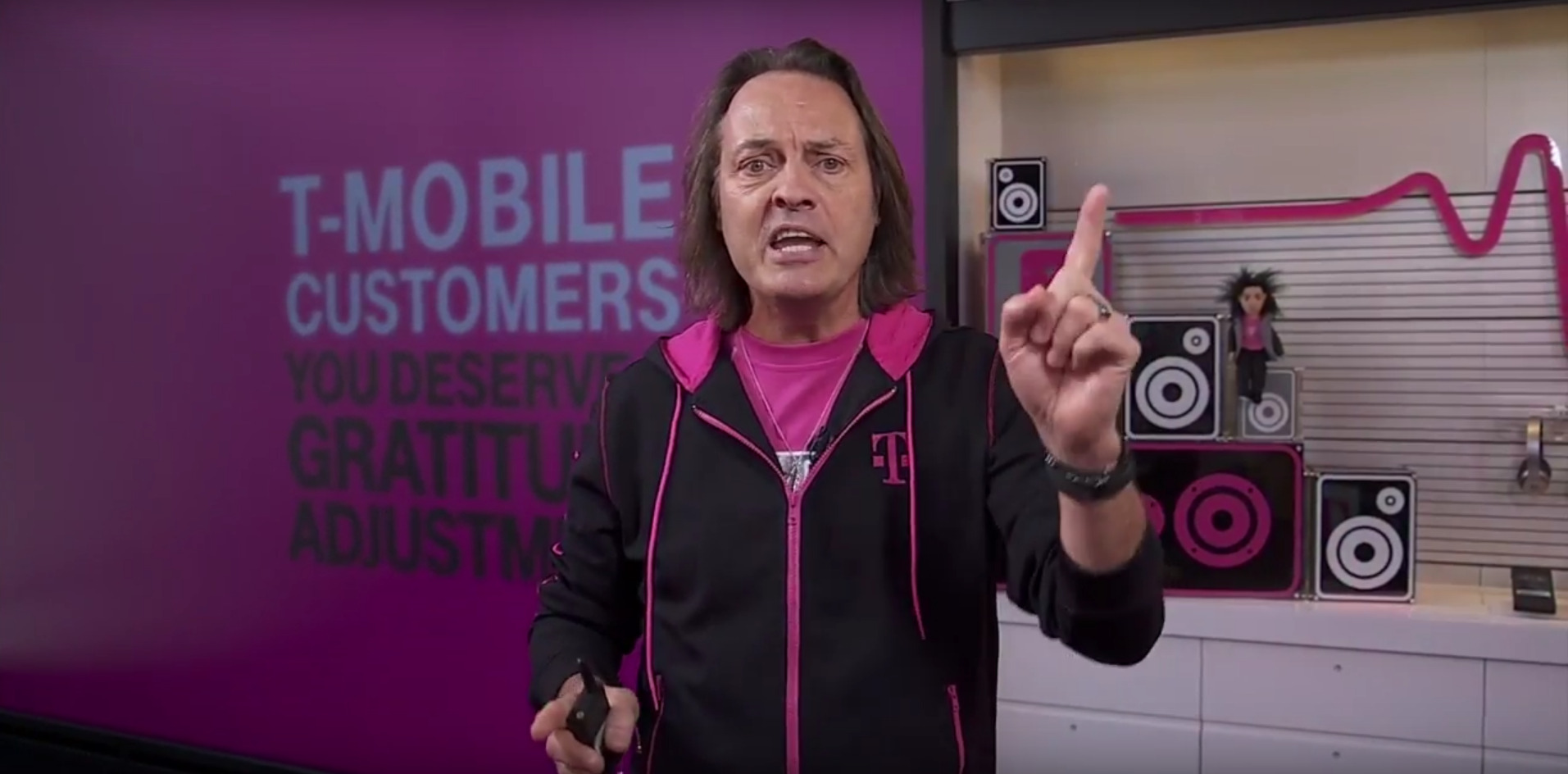Don't Buy The Crap T-Mobile (Or Anyone Else) Is Selling
T-Mobile CEO John Legere took to YouTube today to unleash one of his patented down-with-the-kids tirades against Verizon. The subject? Verizon's recent ad campaign against T-Mobile, which Legere claims to be a bunch of misleading lies.
That may well be true, but T-Mobile is no better. In his four-minute rant, Legere manages to cherry-pick his way around a number of issues without actually telling the truth about his own company's data plans.
It's not his fault. Cell plans and mobile data are currently a twisted mess of half-truths and fudged definitions that are all supposed to hide the same fact: no carrier is actually pro-consumer, because no carrier offers actual unlimited data. Anyone saying otherwise — no matter how hip their hoodie — is lying.
DON'T MISS: Forget the iPhone 8, this all-screen iPhone SE is all the smartphone you need
Legere hits out against Verizon's negative ads, a lot of which are truly misleading. Verizon claimed that T-Mobile hasn't won any awards, doesn't have a next-gen network, and uses bad math to claim you can use 12GB of data for just $80. To its credit, T-Mobile's network technology with LTE-Advanced is up there with the competition, and it is frequently named the fastest carrier in some nationwide tests, depending on how you interpret the data.
But other things Verizon says, and Legere refutes, are completely false. "'T-Mobile doesn't offer unlimited high-speed data' — Well, that's just a straight up lie," Legere says. But it's not.
T-Mobile doesn't actually offer unlimited data. Its signature ONE plan, which promises unlimited data for a family of four for $35 per month, comes with a long list of caveats. Tethering is capped at slow speeds, video and audio streams are capped at standard definition, and if you go over 28GB of data, you're liable to be throttled for the rest of the month.
None of those restrictions mean T-Mobile's plan is bad! If you only occasionally watch videos on the go, don't tether often, and use a faintly reasonable amount of data, T-Mobile's plan is cheap and has no risk of overage charges.
But it's still not unlimited.
T-Mobile is not the only cell network that does this. AT&T, Sprint and Verizon are all guilty of using confusing terms: they call things unlimited* and attach a paragraph of limits to the end of the ad. They describe speeds as "4G Advanced!" or 2G or 3G, rather than just saying an actual number like 5Mbps, which we all understand.
It's easy to see why. Years ago, the mobile business was very different. Plans included minutes, texts, roaming charges, some data, and a lot of fees involving three-year contracts for cellphones. These days, it's mostly no-term contracts and upfront phone payments, all calls and texts are unlimited, and the only thing left to differentiate between different plans is the amount of data.
Rather than trying to compete to push the price of a gigabyte of data lower, carriers are instead resorting to using novel pricing strategies and obscure terms to make their plans seem better than the competition.
Want to see what a real simple, transparent, consumer-friendly network looks like? Take a look at Google Fi, which sells data by the gigabyte as you need it. There's no bulk discounts, you don't pay for data you don't use, and billing is stupid-simple. It's remarkably simple and easy to understand, and it doesn't involve CEOs taking to Twitter to swear at each other on a weekly basis.
T-Mobile has already been fined $7.5 million by the FCC for misleading consumers over the meaning of "unlimited," but the problem is far from fixed. Cell plans themselves are getting better, faster and cheaper every year. It's just a shame that the networks are going to such lengths to hide that fact underneath a mountain of bull.
